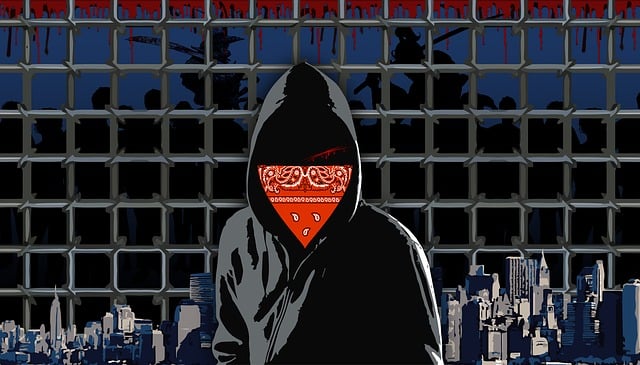Understanding your rights during traffic stops is vital for young drivers, especially in the U.S., where the Fifth Amendment protects against self-incrimination. Youth DUI Prevention Programs, led by schools and community groups, educate teens about responsible driving, their legal rights, and the dangers of impaired driving, significantly reducing underage drinking and driving rates. When pulled over, staying calm, polite, and aware of your rights (like the right to remain silent) can help de-escalate situations. These programs empower adolescents with safer choices and support from peers and parents, fostering a culture of responsible driving.
“Traffic stops can be stressful, especially for young drivers navigating the roads for the first time. Understanding your rights during these interactions is crucial. This article guides you through the essential knowledge every driver under 21 needs to know. From recognizing common mistakes to avoiding them, we explore strategies to navigate these situations safely. Additionally, we delve into the impact of Youth DUI Prevention Programs and offer resources for support, ensuring a more informed and responsible driving experience.”
- Understanding Your Rights During a Traffic Stop
- The Impact of Youth DUI Prevention Programs
- Common Mistakes to Avoid When Pulled Over
- What to Do If You're Not Sure About an Officer's Actions
- Resources and Support for Drivers Under 21
Understanding Your Rights During a Traffic Stop

During a traffic stop, it’s crucial to understand and assert your rights. In the United States, for instance, all citizens, regardless of age, have the right to remain silent and refuse to provide evidence against themselves, as guaranteed by the Fifth Amendment. This means you don’t have to answer any questions about your driving or personal information if you feel it might incriminate you. Additionally, if you’re a minor, Youth DUI Prevention Programs can offer guidance on how to handle such situations, ensuring your rights are protected without hindering cooperation with law enforcement.
Remember, law enforcement officers must have reasonable suspicion of a crime before stopping your vehicle. If you’re stopped, politely request the reason for the stop and keep your interactions calm and respectful. It’s also wise to be aware of any local laws or youth-specific guidelines related to traffic stops, as they may offer further protection and guidance tailored to young drivers and their rights.
The Impact of Youth DUI Prevention Programs

Youth DUI Prevention Programs have made significant strides in reducing drunk driving incidents involving teenagers. These initiatives, often spearheaded by schools, community organizations, and law enforcement agencies, focus on educating young people about the dangers of operating vehicles while impaired. Through interactive workshops, peer-led discussions, and real-life storytelling, these programs foster a culture of responsibility and awareness.
The effectiveness of Youth DUI Prevention Programs is evident in statistics showing declines in underage drinking and driving. By targeting youth with age-appropriate messaging and strategies, these programs not only discourage risky behavior but also equip young people with the knowledge to make safer choices. Additionally, they often involve parents and caregivers, strengthening the link between home and school in promoting responsible behavior on the roads.
Common Mistakes to Avoid When Pulled Over

When pulled over by a law enforcement officer, panic is understandable but can cloud judgment. A common mistake is failing to remain calm and polite, which can potentially escalate an already stressful situation. It’s crucial to remember your rights; for instance, you have the right to remain silent as anything said can be used against you in court. Avoid any impulsive actions or statements that might give officers a reason to suspect impairment or other illegal activities, especially when dealing with Youth DUI Prevention Programs.
Another mistake often made is refusing to provide basic information like your driver’s license and registration. This could lead to penalties or longer delays. Always carry these documents with you and provide them upon request. Additionally, some individuals might attempt to record the stop, which isn’t inherently wrong but should be done responsibly, ensuring no obstruction of officer duties. Staying focused on cooperative communication can help prevent misunderstandings and potential legal issues, especially when high-pressure situations arise from traffic stops.
What to Do If You're Not Sure About an Officer's Actions

If you’re ever unsure about an officer’s actions during a traffic stop, it’s crucial to stay calm and polite. You have the right to remain silent and refuse to answer any questions; this is especially important if you believe the stop was unjustified or if you’re facing potential charges. Remember, officers are required to inform you of your rights during the encounter.
In the event that you’re a minor, it’s even more essential to understand your rights, particularly in relation to Youth DUI Prevention Programs. These programs aim to educate young people about the consequences of drunk driving and promote responsible behavior. If you’re stopped, you can ask the officer if there’s a program available for minors at the station, ensuring that any interactions with law enforcement are productive and informative.
Resources and Support for Drivers Under 21

For drivers under 21, navigating traffic stops can be daunting, especially with the potential risk of a Youth DUI (Driving Under the Influence) charge. Fortunately, there are numerous resources and support systems in place to guide and protect young individuals during these encounters. Many communities offer specialized programs focused on Youth DUI Prevention, providing education and awareness about the dangers of impaired driving. These programs often include workshops, interactive sessions, and peer-to-peer support groups that empower teens to make responsible decisions behind the wheel.
Local law enforcement agencies and community organizations collaborate to deliver these initiatives, ensuring young drivers have access to accurate information and resources. By participating in such programs, drivers under 21 can learn their rights during traffic stops, understand the legal consequences of DUI offenses, and develop strategies to refuse unsafe drinking opportunities. These proactive measures contribute to a safer driving culture for teens and play a vital role in Youth DUI Prevention.
Knowing your rights during a traffic stop is crucial for all drivers, especially those under 21 facing potential Youth DUI charges. Understanding these rights and common mistakes to avoid can significantly impact the outcome of an interaction with law enforcement. The article has explored essential aspects, from the benefits of Youth DUI Prevention Programs to practical tips on what to do when pulled over. Remember that staying calm, being respectful, and asserting your legal rights are key. For further guidance and support, utilize the available resources to ensure you’re protected and informed.






